
Fundamentals of Addiction Medicine Online
- Registration Closed

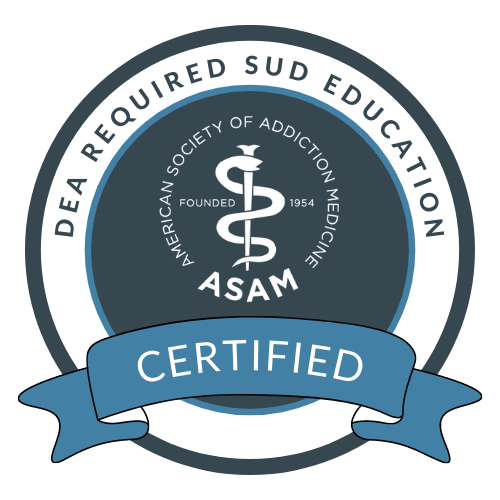
ASAM Fundamentals of Addiction Medicine
Online Workshop
Overview
The ASAM Fundamentals of Addiction Medicine is an 8-hour on-demand innovative, case-based workshop designed for providers who are relatively new to the field of addiction medicine, such as primary care physicians, clinicians, nurse practitioners, physician assistants, and behavioral health specialists, who see patients at risk for or with addiction.
Addiction as a disease continues to cost the global community a staggering amount both financially and in lives lost, but there are treatments available to help patients. Participants of this workshop will learn more about addiction medicine and how to screen, diagnose, treat, and/or refer patients with addiction – many of whom have co-occurring medical and psychiatric comorbidities.
This is a practical, cased based course designed to be interactive and engaging. The course is designed to empower primary care and other providers to diagnose and treat patients at risk for, or with addiction, by translating the signs of the disease of addiction into transformative, positive outcomes for patients.
The target audience for this beginner level workshop include: physicians, nurse practitioners/nurses, physician assistants, counselors, and other healthcare providers. Clinicians who see patients with addiction in primary care, emergency/urgent care, treatment center, or general psychiatry settings.
The ACGME competencies include: Patient Care and Procedural Skills, Medical Knowledge, Practice-based Learning and Improvement, Interpersonal and Communication Skills.
This on-demand course contains the following modules:
- Module 1: Meeting Our Patient: An Introduction to Addictive Disorders
- Module 2: The Clinical Manifestations of the Neurobiology of Addiction
- Module 3: For Every Ill, There May Be a Pill: Assessing and Treating Substance Use Disorders
- Module 4: Should I Open Pandora's Box? SBIRT and a "Taste" of Motivational Interviewing
Learning Objectives
Upon completion, learners will be able to:
- Identify your own feelings and attitudes that promote or prevent therapeutic responses to patients with substance use disorders
- Explain what occurs in the brain of a person with substance use disorder in terms of the brain's neurobiology
- Use validated patient screening tools to detect substance use and interpret a spectrum of results
- Use motivational interviewing to enhance patients' readiness to change risky behaviors
- Offer the interventions that are appropriate to specific substances and severity of usage patterns
- Respond to hazardous drinking with brief counseling strategies appropriate to the patient's readiness to change
- For patients suspected of having a SUD, conduct a biopsychosocial assessment to provide a diagnosis and match the patient to an appropriate level of care
- Prescribe pharmacotherapy appropriately for alcohol, tobacco, and opioid use disorders
DEA Education Requirement
As an accredited organization named in Section 1263 of the Consolidated Appropriations Act of 2023, ASAM certifies that completion of this course meets the DEA requirement for 8 hours of education on substance use disorder(s).
Fees
| Rate Description | Rate |
| ASAM Member | $149 |
| Non-Member | $199 |
| Associate Member | $99 |
| Resident Member* | $99 |
| Student Member* | $99 |
(*) Residents, Fellows-in-training, Interns, and Students must join ASAM to receive a discounted registration rate.
- Click here to become an ASAM member.
- Residents, Fellows-in-training, and Interns: National and Chapter membership dues apply.
- There is no charge for Students to become a Member, but verification of student status is required.
- Membership Question? Call ASAM at 1.301.656.3920, email us, or view the ASAM website for more information.
Refunds & Cancellations
All ASAM e-Learning Center refund requests must be made in writing to education@asam.org within 90 days of purchase. Those requesting refunds for courses that are in progress will receive partial refunds or e-Learning Center credit. Automatic full refunds will be made for any course with a live-course component that has been cancelled.
Registration Deadline: 04/30/2024
Course Instructions
- Click the Contents tab and select "Complete Course Overview Module". After completing the entire module, return to the Contents tab. Complete the remaining modules.
- Click "Complete Post Test" to answer quiz questions. You will have 10 attempts and must get at least 18 out of 25 questions correct. After completing the quiz, return to the Contents tab.
- Click Complete Evaluation to answer evaluation questions. Scroll down on all questions, there are answers that expand past the size of the window. Submit the evaluation (the next box should activate, and the evaluation box should turn green with a white check mark).
- Click the button “Claim Credits” in the box titled “Claim Credits & Certificate." Choose the type of credit and click submit. Click the button “View/Print Certificate” to save or print your certificate. If you ever lose your certificate, you can come back to the ASAM e-Learning Center and view it on your transcript (found in the Dashboard).
Need Assistance?
If you have are experiencing any log in issues, cannot access a course, need assistance claiming credit, or have other questions or concerns, please e-mail Education@asam.org for assistance.
For learners who may have difficulty typing, moving a mouse or reading, Essential Accessibility is an application available for use to assist.
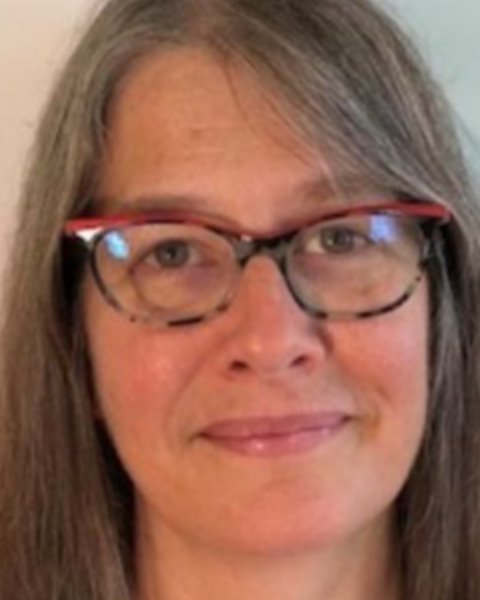
Abby Letcher
MD, FASAM
Abby Letcher MD, FASAM is a Family Physician and Addiction Medicine Specialist in Allentown, PA. As an advocate for community responsive health systems, she was the founding Medical Director of the area's first Federally Qualified Health Center, developed integrated behavioral health and the first primary care program for medications for opioid use disorder, and community oriented Project ECHO for OUD. She partners with local community based organizations to promote Radical Welcome in healthcare, health equity and participatory system change.
No relevant financial disclosures
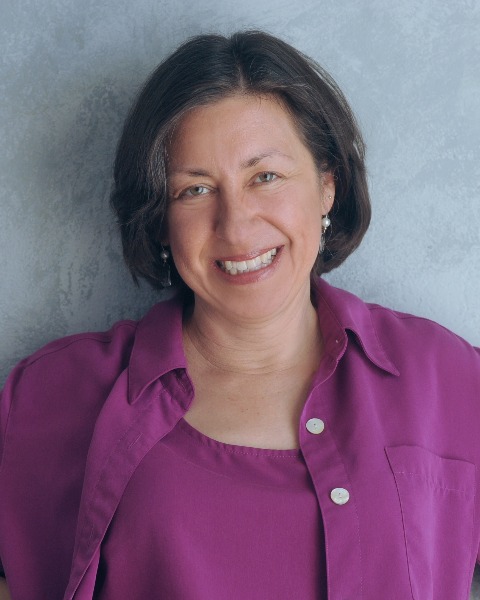
Miriam S. Komaromy, MD, FACP, DFASAM
Medical Director
Grayken Center for Addiction, Boston Medical Center, Boston University
Dr. Miriam Komaromy is an internal medicine and addiction specialist physician and is the Medical Director of the Grayken Center for Addiction at Boston Medical Center, Boston University, in the United States. She is a member of the board of directors of the American Society of Addiction Medicine. She is vice-chair of ASAM’s National Medical Education Committee, and she chairs their Fundamentals of Addiction Medicine Committee. She was elected ASAM educator of the year for 2019. She was an Associate Director in the ECHO Institute in New Mexico 2014-2019. She led the development of ECHO programs focused on the treatment of substance use disorders, behavioral health disorders, and care of complex populations for the past 14 years. Dr. Komaromy lectures nationally and internationally on addiction medicine topics, including treatment of opioid use disorder, harm reduction, and how to address the use of amphetamine-type substances.
No relevant financial disclosures
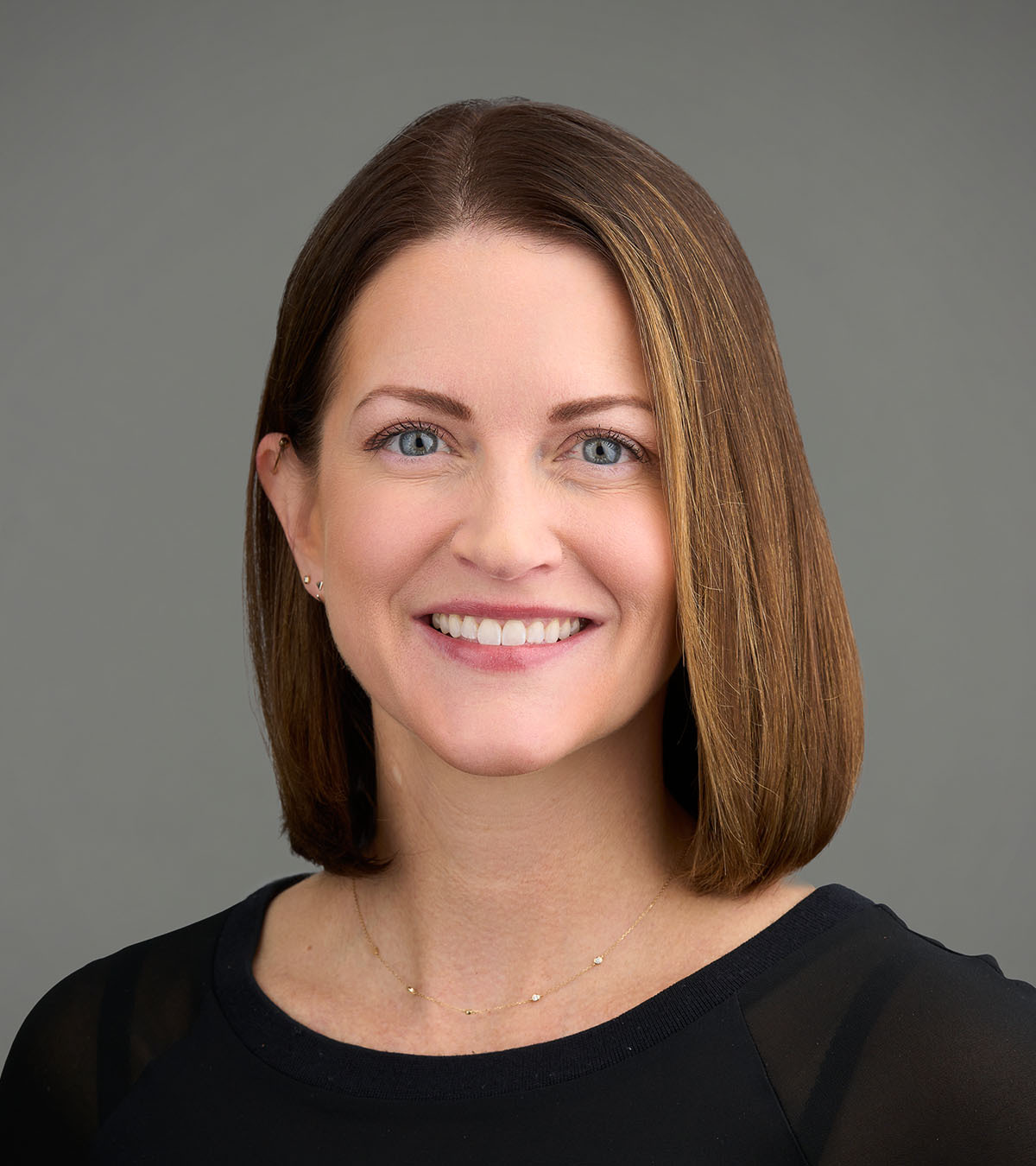
Elizabeth M. Salisbury-Afshar
MD, MPH, FAAFP, FACPM, DFASAM
Dr.Salisbury-Afshar is an Associate Professor at the University ofWisconsin-Madison. Her work focuses on improving the health and wellbeing ofpeople who use drugs and alcohol. She is a physician who is board-certified inaddiction medicine, family medicine, and preventive medicine/general publichealth, and her expertise lies at the intersection of these fields. Her workincludes patient care, teaching, public health practice, and research relatedto implementation and evaluation of addiction treatment and harm reductionprograms. Dr. Salisbury-Afshar serves as the Program Director of the PreventiveMedicine Residency and as the Medical Director of Harm Reduction Services forthe Wisconsin Department of Health Services Division of Public Health. She has overfourteen years of experience working clinically in federally qualified healthcenters. Her current clinical work includes serving as Medical Directorof a low barrier clinic for people who use drugs and as a physician on theaddiction medicine consult team at UW Hospital. She is also core faculty in theUW Addiction Medicine Fellowship Program.
No relevant financial disclosures.
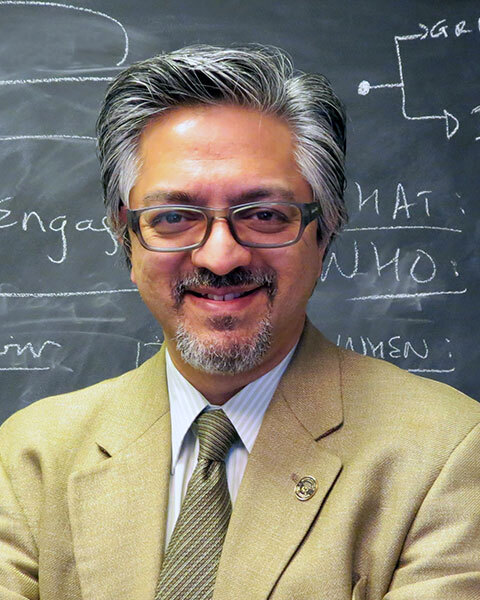
Peter Selby
MBBS, CCFP, FCFP, DFASAM
Dr. Peter Selby is a Senior Medical Consultant and Clinician Scientist at the Centre for Addiction and Mental Health (CAMH). He is the Vice-Chair, of Research, and Giblon Professor in Family Medicine Research, a University Named Professorship at the University of Toronto. He is also the Director of the Mental Health and Addictions Division in the Department of Family and Community Medicine, University of Toronto. His research focuses on innovative methods to understand and treat addictive behaviors and their comorbidities. He also uses technology to combine clinical medicine and public health methods to scale up and test health interventions.
He has received grant funding totaling over 100 million dollars from CIHR, NIH, and the Ministry of Health and has published >150 peer-reviewed publications. He has published 6 books (including 5 edited), is the author of 31 book chapters, and has 38 research reports prepared for the government. He is the Chair of the Medical Education Council for the American Society of Addiction Medicine. Dr. Selby mentors Fellows in Addiction Medicine and Addiction Psychiatry, junior investigators, and medical students. The use of innovative methods to communicate messages makes Dr. Selby a sought-after speaker for various topics including addictive disorders, motivational interviewing, and health behavior change at individual and system levels.
Does Disclose - Johnson and Johnson, Consultant/Advisory Board, Other Research Support includes receipt of drugs, supplies, equipment or other in-kind support, Pfizer, Consultant/Advisory Board, Other Research Support includes receipt of drugs, supplies, equipment
CME, CE, CEU and Other Credit Types

ACCME Accreditation Statement
The American Society of Addiction Medicine is accredited by the Accreditation Council for Continuing Medical Education (ACCME) to provide continuing medical education for physicians.
AMA Credit Designation Statement
The American Society of Addiction Medicine designates this enduring material for a maximum of 8 AMA PRA Category 1 Credits™. Physicians should claim only the credit commensurate with the extent of their participation in the activity.
NAADAC, the Association for Addiction Professionals
This activity has been approved by the American Society of Addiction Medicine, as a NAADAC Approved Education Provider, for educational credits. NAADAC Provider #295, ASAM is responsible for all aspects of the programming.
National Board for Certified Counselors ACEP
The American Society of Addiction Medicine has been approved by NBCC as an Approved Continuing Education Provider, ACEP No. 7062. Programs that do not qualify for NBCC credit are clearly identified. The American Society of Addiction Medicine is solely responsible for all aspects of the programs.
Continuing Education Credits (CEUs)
Non-physician participants will receive a certificate of attendance upon completion of the activity and an online evaluation confirming their participation. Participants should submit his/her certificate of attendance to their professional organization/institute.
Maintenance of Certification (MOC)
American Board of Medical Specialties MOC Approval Statement
Through the American Board of Medical Specialties (“ABMS”) ongoing commitment to increase access to practice relevant Continuing Certification Activities through the ABMS Continuing Certification Directory, the ASAM Fundamentals of Addiction Medicine Online Workshop has met the requirements as a MOC Part II CME Activity (apply toward general CME requirement) for the following ABMS Member Boards: Allergy and Immunology, Anesthesiology, Colon and Rectal Surgery, Family Medicine, Medical Genetics and Genomics, Nuclear Medicine, Physical Medicine and Rehabilitation, Plastic Surgery, Preventive Medicine, Psychiatry and Neurology, Radiology, Thoracic Surgery, Urology
American Board of Preventive Medicine (ABPM)
The American Board of Preventive Medicine (ABPM) has approved this activity for a maximum of 8 LLSA credits towards ABPM MOC Part II requirements.
American Board of Anesthesiology (ABA)
This activity contributes to the CME component of the American Board of Anesthesiology’s redesigned Maintenance of Certification in Anesthesiology TM (MOCA®) program, known as MOCA 2.0®.
American Board of Pediatrics (ABP)
Successful completion of this CME activity, which includes participation in the activity, with individual assessments of the participant and feedback to the participant, enables the participant to earn a maximum of 8 MOC points in the American Board of Pediatrics’ (ABP) Maintenance of Certification (MOC) program. It is the CME activity provider’s responsibility to submit participant completion information to ACCME for the purpose of granting ABP MOC credit.
American Board of Internal Medicine (ABIM)
Successful completion of this CME activity, which includes participation in the evaluation component, enables the participant to earn up to 8 Medical Knowledge MOC points in the American Board of Internal Medicine’s (ABIM) Maintenance of Certification (MOC) program. Participants will earn MOC points equivalent to the amount of CME credits claimed for the activity. It is the CME activity provider’s responsibility to submit participant completion information to ACCME for the purpose of granting ABIM MOC credits.
American Board of Surgery (ABS)
Successful completion of this CME activity, which includes participation in the evaluation component, enables the learner to earn credit toward the CME and/or Self-Assessment requirements of the American Board of Surgery’s Continuous Certification program. It is the CME activity provider's responsibility to submit learner completion information to ACCME for the purpose of granting ABS credit.
American Board of Psychiatry and Neurology (ABPN)
Successful completion of this CME activity can be used to satisfy the American Board of Psychiatry and Neurology’s (ABPN) CME requirement for Maintenance of Certification program.
American Board of Addiction Medicine (ABAM)
Successful completion of this activity can be used to satisfy the American Board of Addiction Medicine (ABAM) for Tmoc as credits towards ABAM LLSA Part II requirements.
Royal College of Physicians and Surgeons of Canada (RCPSC)
Royal College Fellows can use participation in Accredited Continuing Medical Education to earn Section 3 Credits.
Disclosure Information
In accordance with disclosure policies of ASAM and the ACCME, the effort is made to ensure balance, independence, objectivity, and scientific rigor in all CME/CE activities. These policies include mitigating all possible relevant financial relationships with ineligible companies for the Planning Committees and Presenters. All activity Planning Committee members and Presenters have disclosed relevant financial relationship information. The ASAM CE Committee has reviewed these disclosures and determined that the relationships are not inappropriate in the context of their respective presentations and are not inconsistent with the educational goals and integrity of the activity.

